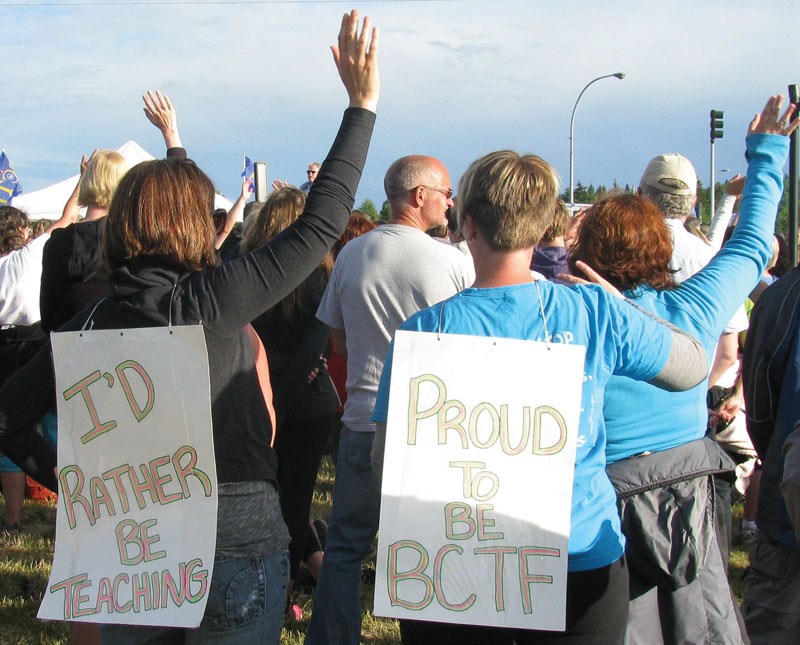Amidst the chaos of the COVID-19 crisis which has closed the province’s kindergarten-Grade 12 schools to students indefinitely, a tentative deal has been reached for the B.C. 45,000 public school teachers.
Months of bargaining ended Thursday afternoon when a collective agreement between the BC Teachers Federation and BC Public School Employers Association was announced.
Terms of the deal were not released while the two sides work out further details but the BCTF executive is recommending ratification.
“We are absolutely thrilled that this news came out yesterday with everything we’ve been dealing with, this was welcome news,” said Joanne Hapke, president of the Prince George District Teacher Association.
“The PGDTA is very happy we were able to get a collective agreement, one that’s being recommended by our bargaining team and the executive committee. “
BC teachers have been without a contract since June 2019.The new deal falls within the provincial mandate which caps public sector wage increases at two per cent annually.
“I knew there had been more intense mediation occurring but you can never assume that means things are good,” said Hapke. “There needed to be a willingness on both sides to get to this point and I’m not sure what happened at those tables but so we’re happy that it actually worked in favour of teachers and the public education system.”
Hapke said the contract offer addresses recruitment and retention issues.
“There‘s been language that is already existing in the agreement on leaves that are good for our members, (and) the salary has been addressed,” she said. “While Terri (BCTF president Mooring) has stated it is higher than anything we’ve achieved in the last few rounds, it’s nothing that’s going to cause concern in the public. We did not break that (public sector) mandate.”
In September 2014, BC teachers ended their longest strike in history when they signed a six-year back-dated deal which retained the right the bargain on class size and composition and provided a 7.25 per cent wage increase. The 2013-14 strike, which ended Sept. 17, 2014, kept classrooms closed for 40 days.
“I, as the president of the local, am very pleased that we did not have to ask our members to go on strike to get a collective agreement,” said Hapke. “That was always our hope, from the moment the NDP went into power, was that we could get an agreement that would involve the teachers not losing money to do so.”
Hapke said the ratification vote will be an online poll. Due to the uncertainty over the coronavirus pandemic she doesn’t foresee that happening for at least a week.
“The typical ratification process would include meetings and school visits and that’s not happening,” she said. “The BCTF executive committee will create a plan and we’ll go forward with that when they’ve created it. With children not on site at this time there is time to get a plan put in place for a ratification process that works for everyone.
“We have 40,000 members in the province and (some of them) they have equity access issues to computers and WiFi and we have to make sure everyone gets the opportunity to safely vote on ratification.”



